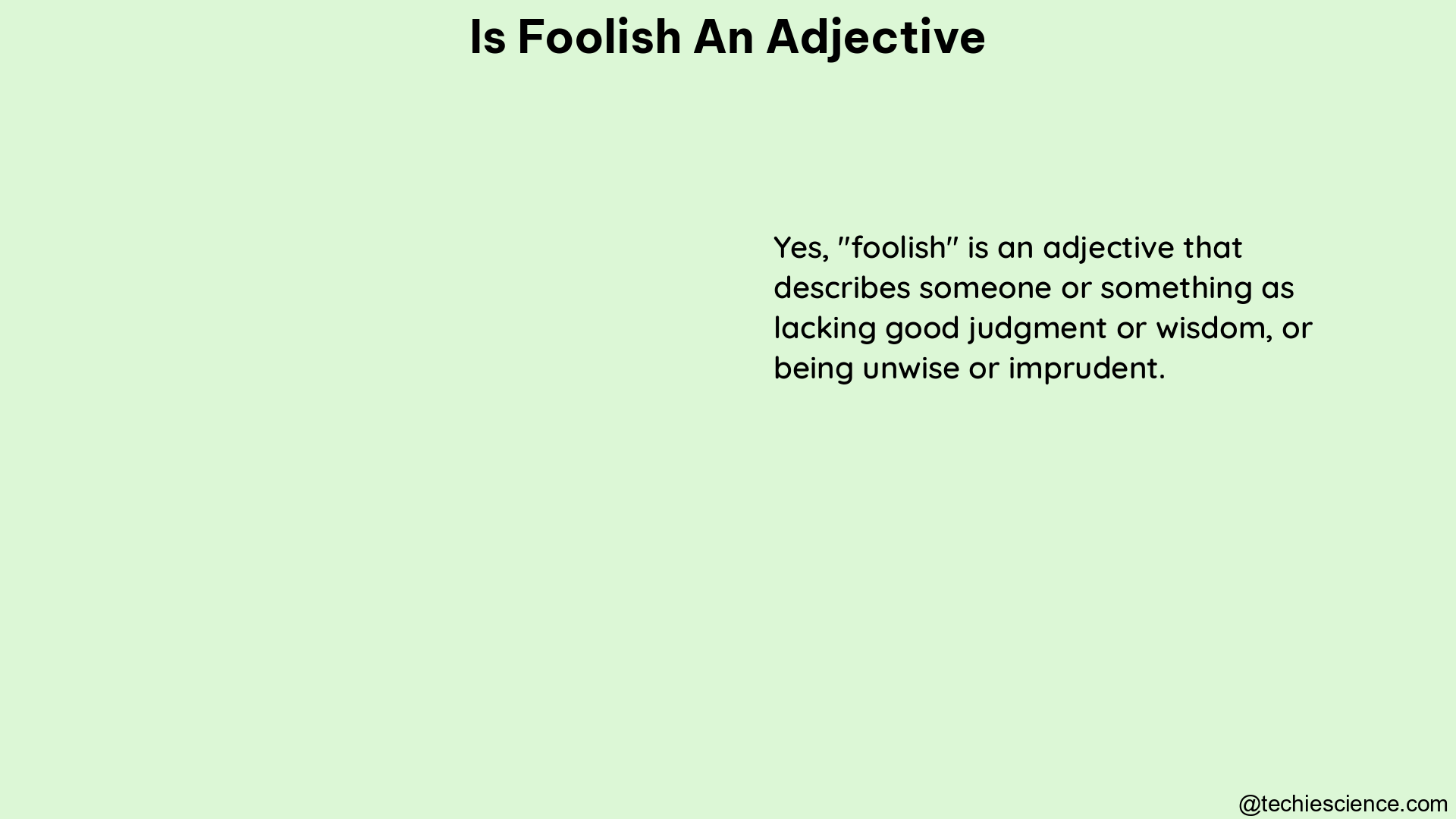Yes, “foolish” is an adjective that is used to describe actions, behavior, or people that lack good sense, judgment, or discretion. This comprehensive guide will delve into the definition, pronunciation, examples, synonyms, antonyms, grammatical specifications, theoretical explanations, and advanced hands-on details of the word “foolish” as an adjective.
Definition and Pronunciation
The adjective “foolish” means “not showing good sense or judgment” or “made to feel or look silly and embarrassed.” The pronunciation of “foolish” is /ˈfuː.lɪʃ/ in British English and /ˈfuː.lɪʃ/ in American English.
Examples

Here are some examples that illustrate the usage of “foolish” as an adjective:
- “That was a rather foolish thing to do.” (describing an action)
- “She was afraid that she would look foolish if she refused.” (describing a feeling)
- “I was foolish enough to believe what Jeff told me.” (describing a behavior)
- “He made a foolish bet with his brother and now he has to pay up.” (describing an action)
Synonyms and Antonyms
Synonyms of the adjective “foolish” include “silly,” “stupid,” “absurd,” and “irrational.” Antonyms of “foolish” include “wise,” “prudent,” “sound,” “sensible,” and “judicious.”
Grammatical Specification
The adjective “foolish” can be used to describe actions, behavior, or people, and it can also be used to describe how someone feels or appears. It can be used in various sentence structures, such as “It was foolish of them to pay so much” or “I felt very foolish standing there with only one shoe on.”
Theoretical Explanation
The adjective “foolish” conveys a sense of lack of judgment or good sense. It can be used to criticize or describe actions, behaviors, or people that are seen as unwise or silly. The word can also be used to express how someone feels or appears in a situation, such as feeling embarrassed or looking silly.
Advanced Hands-on Details
The adjective “foolish” can be used in different contexts, such as in formal or informal writing, and in spoken language. It can be used to add tone or emotion to a sentence, and it can be used to create vivid descriptions of people or actions. The word can be used in combination with other adjectives or adverbs to create more nuanced descriptions, such as “very foolish” or “extremely foolish.”
Reference Links
- Cambridge Dictionary – Foolish
- Oxford Learners Dictionaries – Foolish
- Oxford Learners Dictionaries – Foolish (American English)
- Merriam-Webster – Foolish Synonyms
- Merriam-Webster – Foolish Definition & Meaning

Hi, My name is Ammu Shaji. I hail from Kerala. I hold a post-graduate degree in English Language and Literature. I am an Academic writer by passion and profession.